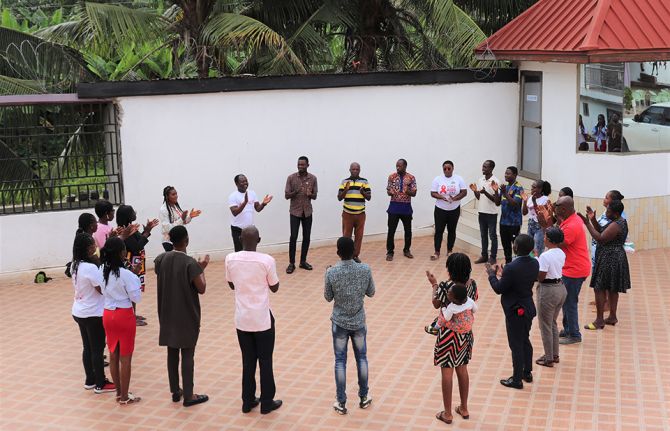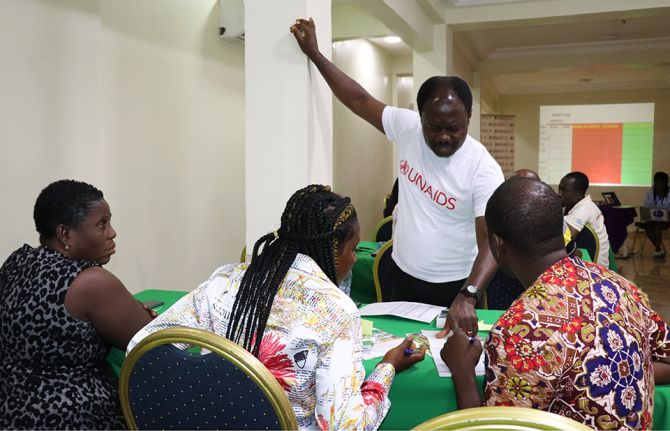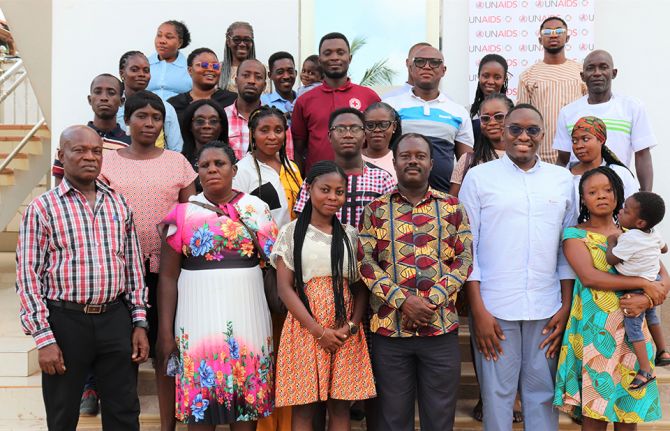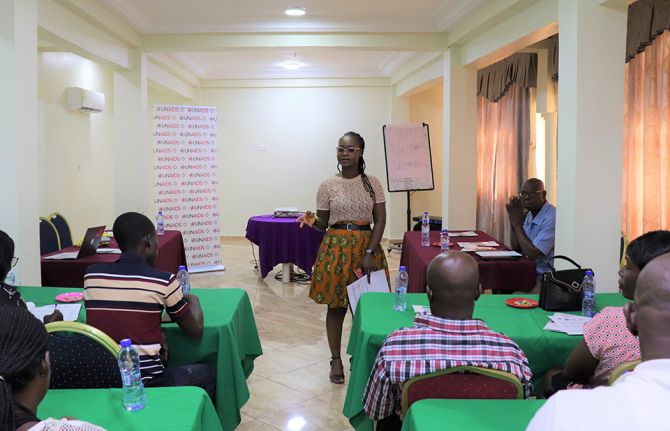




Feature Story
Meet a Vaccine Champion overcoming vaccine hesitancy in Ghana
14 July 2022
14 July 2022 14 July 2022On 24 February 2021, Ghana became the first recipient of a shipment of 600 000 COVID-19 vaccines under the COVAX initiative, a global effort to provide access to vaccination and curtail transmission of the virus in developing countries.
Joshua Appiah, who is living with HIV, was apprehensive about getting the Covid vaccine because he had been influenced by misinformation: “Some of what was circulating on social media frightened me. I was scared the jab would compromise my immune system and kill me!”.
After coming to learn that it is a lack of vaccination which poses a threat to health, particularly for people living with HIV, Joshua is angry at those who have promoted “misleading stories about the vaccine, its effects, the motivations behind its creation”. That is why Joshua decided to play his part. In June this year, he became one of 40 Vaccine Champions to undergo COVID-19 vaccination advocacy training, aimed at reinforcing their capacity to spread positive messaging and debunk “fake news”, myths and lies in their discussions with local community members. In turn, the programme hopes to increase vaccine uptake in local communities and among people living with HIV at ART sites, as Ghana continues to battle vaccine hesitancy.
The two-day training for Vaccine Champions was organised by Hope for Future Generations (HFFG), in partnership with the National Association of Persons Living with HIV (NAP+) Ghana, Young Health Advocates Ghana (YHAG), and the Ghana Red Cross Society (GRCS), with technical support from the Ghana Health Service. This activity falls under the Partnership for Accelerated COVID-19 Testing (PACT) 2.0 project, supported by UNAIDS and funded by the Government of Germany.
For Joshua, the topics covered, such as public sensitization on COVID-19, debunking myths and misconceptions, developing effective communication strategies, investigating the role of Vaccine Champions and working with data collection tools, have been enlightening and have empowered him to spread the word on vaccine uptake. “I took particular interest in the sessions on COVID-19 vaccine myths and misconceptions. I am now convinced that vaccines do not contain microchips, nor render people infertile, and I also feel comfortable spreading scientifically sound facts among the communities I am in contact with.”
In her opening remarks for the training in Accra, Executive Director of HFFG, Cecilia Senoo, described the current state of vaccine hesitancy as worrying, reinforcing the urgency of the project. She commended the Vaccine Champions for embarking on a “worthy cause” and encouraged the Vaccine Champions to remain devoted to their mandate. UNAIDS Ghana Youth Programs Officer, Eric Sinayobye, stated that, “vaccine hesitancy is a stumbling block to achieving mass immunity in Ghana, hence the need for Vaccine Champions to help educating members of the community”.
After the training, the 40 Vaccine Champions were deployed at ART sites and inside communities to provide education on the importance of getting vaccinated, as well as to help debunk myths surrounding the vaccines in the next three months. With funding from the Government of Germany, UNAIDS continues to work with the Africa Centers for Disease Control (Africa CDC) to strengthen community-led response against COVID-19 and HIV in Africa.



